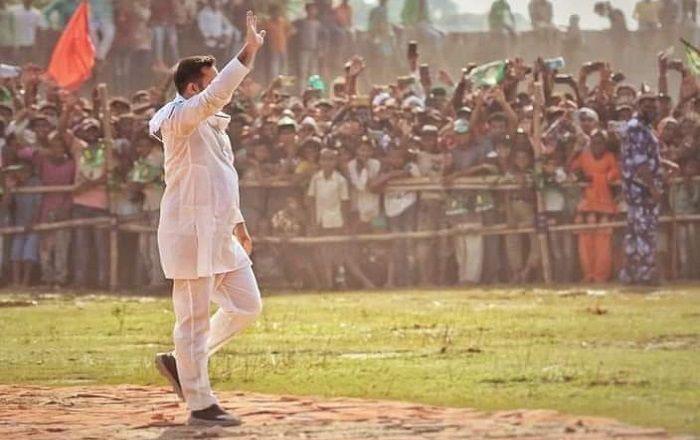
Though it can be argued that primacy of social equation in winning the election is still very much intact in Bihar, yet the just concluded election provides enough evidence of shift in state politics. The campaign remained largely grounded to fundamental issues such as livelihood, health and education, while the rhetoric of identity politics could not cut much ice .
The Exit Polls confirmed that the party or alliance (Grand Alliance in this case), which changed its way of electioneering actually succeeded.
What led to the drastic change? The answer lies in the twin disruptions of Corona virus and subsequent lock down. During the long spells of suspension of economic activities enforced to curb the spread of pandemic, the vast poor population, having bare means, had to struggle for survival. Then, the huge influx of migrant labourers doubled the misery.
At such critical times, the state government failed to soothe these vulnerable sections of the citizens. Instead, Chief Minister Nitish Kumar’s statement that he will not let the homebound migrants enter Bihar became symbolic of the state government’s apathy towards them. This led to the migrant labourers who mostly belonged to the subaltern caste turning hostile towards Nitish.
Incidentally, Paswans, a Mahadalit subcaste who constitute a significantly large proportion of the migrant labourers found LJP– which claim to represent them– echoing their sentiments as the party president Chirag Paswan and until his death Union minister, Ram Vilas Paswan have been frequently attacking the Nitish Kumar government over its handling of the crisis.
Political pundits are of the view that LJP had sensed the anger of its votebank towards the state government and decided to go against Nitish’s party Janata Dal (United) for its survival in Bihar. Chirag Paswan appeared to have largely succeeded in his pursuit of bringing back Paswans in his party fold. Thus, effectively he left no stone unturned to ensure the defeat of the NDA.
Ground studies suggest a similar trend among EBC voters who were not keen to confine themselves to Nitish this time. Along with his own caste Karmi, Dalit and EBC used to formed the base vote of JD(U). The younger lot of these castes are said to be prepared for breaking the shackle. According to analysts the change of heart was largely triggered by the migrant labourers who thanks to their exposures are much enlightened and understand politics as a means of empowerment which, according to them could not be subdued on the cost of Identity.
Economist and former Director of A N Sinha Institute of social Studies, D M Diwakar had predicted at the peak of the crisis that migrant labourers returning to the villages will change the social structure of their native land. In a Facebook post he had written, “The young migrant will change the social fabric and societal framework of the villages coming out of the shield of caste and religion.”
In this backdrop, Grand Alliance chief ministerial candidate Tejashwi Yadav’s promise of 10 lakhs jobs worked as a catalyst. The advisors of the RJD scion sensed the pulse of people precisely and built-on a campaign incorporating the prevailing ground realities; thus, became successful in presenting the alliance as a viable option for the political expression of change seekers.
Consequently, people throng in the rallies of Tejashwi as he continued to stick with the basic issues and reiterated in his speeches that he will be committed to the Padai (education), Kamai (jobs), Dawai (medicine), sichai (irrigation), Mahngai (inflation).
Therefore, the exit polls suggest that the just concluded Assembly election might herald a new era of politics in Bihar.
(Shams Khan is contributing editor at the TheNewsweb)





